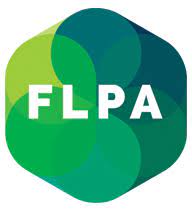Family Law Mediation Brisbane & Gold Coast
Mediation has become an increasingly important part of family law in Australia. Family law mediation offers a less adversarial and more cost-effective alternative to family court proceedings for family dispute resolution (FDR). These family disputes may be related to separation, divorce, child custody, and property settlement. This guide delves into the mediation process in regards to family law issues, providing a detailed understanding for those navigating these challenging waters.
What is Mediation in Family Law?
The family law mediation process is a form of family dispute resolution where a neutral third party, known as a mediator, helps the disputing parties to negotiate and reach an agreement. Unlike a judge or arbitrator, the mediator doesn’t make decisions but facilitates discussion and helps identify solutions that work for both parties.
The Benefits of Mediation – Family Law
Cost-Effective: Family mediation is generally less expensive than going to court.
Time-Saving: It can be quicker to reach a resolution through family dispute resolution services than waiting for a family law court date.
Less Stressful: Mediation is less formal and adversarial than court proceedings.
Confidential: Discussions in mediation are private and confidential.
Control: Parties have more control over the outcome, as they work to create mutually agreeable solutions.
How Does Mediation Work In Family Law?
Mediation in family law is designed to help parties resolve disputes through facilitated negotiation, providing an alternative to the traditional court process. Here is a detailed look at how mediation works in the context of family law:
Family Law and Mediation Services: The Step-by-Step Process
Initial Contact
Mediation usually begins with parties contacting a mediation service provider, also known as family dispute resolution practitioners. The mediation provider conducts a preliminary screening to determine if mediation is appropriate for the case, considering factors such as the nature of the dispute and any issues related to safety or power imbalances.
Choosing a Mediator
A mediator (family dispute resolution practitioner), who is neutral and trained in conflict resolution, is selected. The mediator is an impartial third party with training in conflict resolution and family law issues. Both parties must agree on the choice of mediator.
Pre-Mediation Assessments
The mediator may conduct individual sessions to understand each party’s perspective. These sessions help the mediator understand the perspectives, concerns, and goals of each party. It also allows the mediator to explain the mediation process and set expectations.
Joint Mediation Sessions
The core of the mediation process involves joint sessions where both parties come together in a neutral environment. The mediator facilitates these discussions, ensuring that each party has the opportunity to speak and be heard.
Discussion and Negotiation
During the joint sessions, the mediator guides the parties through a structured discussion of the issues at hand. The mediator helps identify common interests, explore potential solutions, and negotiate terms. The aim is to find mutually acceptable agreements.
Reaching an Agreement
If the parties reach an agreement, the mediator can help draft a written document outlining the terms. This agreement can be informal or, if necessary, made legally binding through consent orders or other legal mechanisms.
Post-Mediation
If an agreement is not reached, the mediator will discuss other options with the parties, such as further mediation, arbitration, or proceeding to court. The mediator may also provide a certificate of attendance, which is often required if the matter proceeds to family court.
Confidentiality and Voluntary Participation
Mediation is a confidential process, meaning that discussions and agreements are not disclosed to others without the consent of both parties. Participation in mediation is voluntary, and either party can withdraw from the process at any time.
Can Lawyers Attend Family Dispute Resolution?
Family lawyers can attend family dispute resolution (FDR) sessions in family law matters. While it is not mandatory to have legal representation during mediation, parties often choose to involve a family law mediation lawyer for guidance. Lawyers can provide legal advice, help prepare for the mediation, and review any agreements reached to ensure they are fair and legally sound. Their presence can be particularly beneficial in complex cases or when there are significant power imbalances between the parties. Ultimately, the decision to have lawyers present during FDR sessions is up to the individuals involved.
When is Mediation Not Appropriate?
Mediation may not be suitable in certain circumstances, particularly in cases involving family violence, power imbalances, or when one party is unwilling to participate in good faith.
For instance, if there are allegations or evidence of family violence or child abuse, a family dispute resolution service may not provide a safe or effective environment for resolving family disputes. The inherent risks and potential for further harm in such situations make it crucial to prioritise the safety and well-being of the affected individuals.
In cases where significant power imbalances exist, such as one party having considerable control over financial resources or decision-making, mediation may not be appropriate.
These imbalances can undermine the fairness of the mediation process, leading to outcomes that may not truly reflect the needs and interests of both parties. Additionally, if one party is not willing to engage honestly and cooperatively in the mediation process, reaching a fair and sustainable agreement becomes highly challenging.
Family dispute resolution services are designed to assess the suitability of mediation for each case. During the initial screening and pre-mediation assessments, family dispute resolution practitioners evaluate factors like the presence of family violence, child abuse, and power dynamics between the parties. If mediation is deemed inappropriate, the family dispute resolution practitioners can provide alternative dispute resolution options or guide the parties toward appropriate legal interventions, such as seeking court orders or other protective measures. This ensures that the process remains focused on achieving safe and equitable outcomes for all involved.
Conclusion
Mediation in family law offers a viable alternative to court proceedings, providing a platform for resolving disputes in a more amicable, private, and cost-effective manner. Understanding the mediation process can empower individuals to make informed decisions and work towards mutually beneficial outcomes.
For those considering family law or divorce mediation Gold Coast and Brisbane wide, Cudmore Legal offers expert guidance and support. Our team can help you navigate the mediation process, ensuring your rights are protected and your voice is heard. Feel free to contact us at any time for help getting your family matters back on track.











